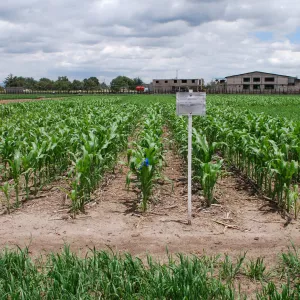Agricultural research adds billions of dollars to economy
As the world searches for effective solutions to mitigate and adapt to climate change while navigating the cost-of-living crisis, delivering food security goals alongside robust economic value is more imperative than ever in agricultural research. CGIAR plays a vital role in this mission, aiming to transform food, land, and water systems in collaboration with its 15 Research Centers, such

Agricultural research adds billions of dollars to economy
As the world searches for effective solutions to mitigate and adapt to climate change while navigating the cost-of-living crisis, delivering food security goals alongside robust economic value is more imperative than ever in agricultural research.
CGIAR plays a vital role in this mission, aiming to transform food, land, and water systems in collaboration with its 15 Research Centers, such as CIMMYT. Now, a new study published in World Development comprehensively analyzes CGIAR’s fiscal impact on global agricultural over nearly 60 years.
The economic impact of CGIAR-related crop technologies on agricultural productivity in developing countries, 1961–2020 suggests that adoption of these technologies equates to US $47 billion annually in economic benefits, with an overall economic benefit of US $1,334 billion for the years covered by the study.
Additionally, investment in productivity gains for staple crops in developing countries has aided entire populations by securing lower food prices and generating large local growth multipliers, thus achieving a greater impact on poverty reduction when compared to productivity growth in other sectors.

